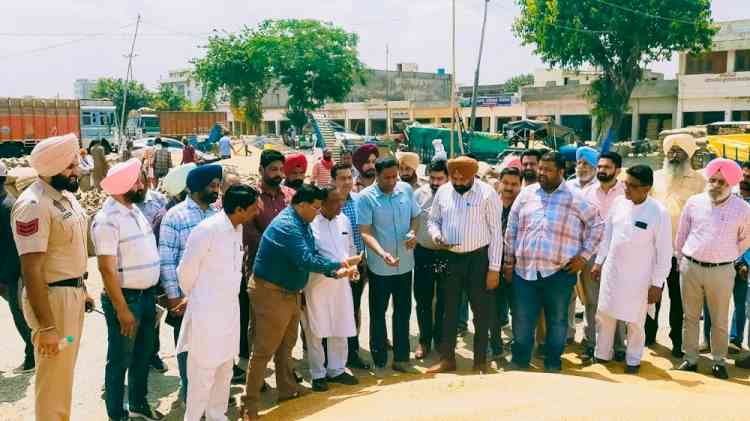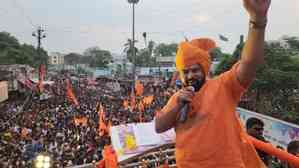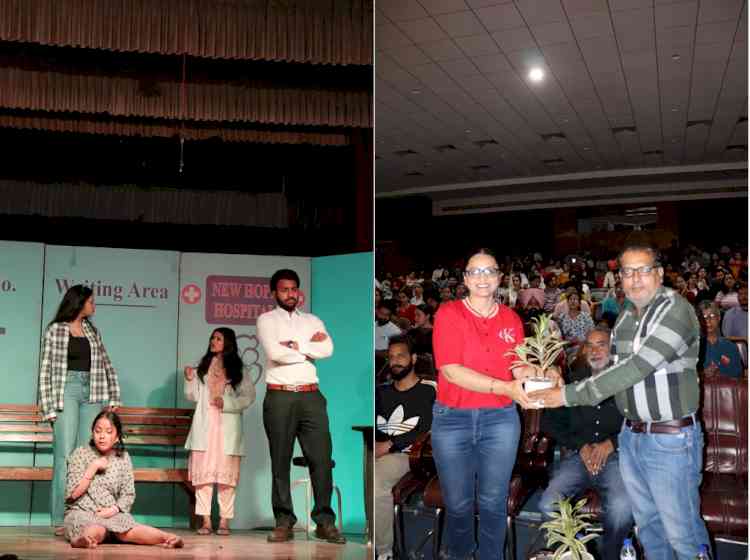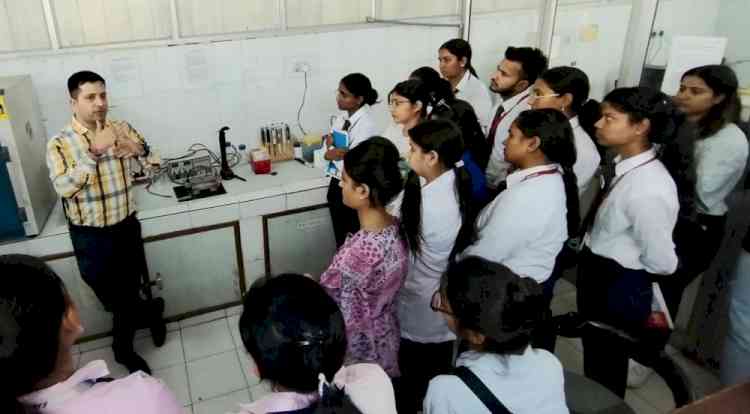National Pollution Control Day Organised at Science City
Author(s): Punjab News Desk @ city air newsThe photograph taken during National Pollution Control Day jointly organised by the Punjab Pollution Control Board Patiala and Science City Kapurthala at Kapurthala on Wednesday. Kapurthala,...


The photograph taken during National Pollution Control Day jointly organised by the Punjab Pollution Control Board Patiala and Science City Kapurthala at Kapurthala on Wednesday.
Kapurthala, December 3, 2014: Paddy is cultivated in 2.8 m ha area in Punjab resulting in generation of about 20 million tonnes of paddy straw. Except for Basmati rice which is generally harvested manually and straw thereof is used as cattle feed and for rope making, other varieties of paddy are harvested mechanically, leaving considerable stubble in the field which is burnt by farmers to prepare their farms for sowing of next Rabi crop.
This was told by Dr. S.S Ladhar, Additional Director, Punjab State Council for Science &Technology Chandigarh on the occasion of National Pollution Control Day at Science City. National Pollution Control Day was jointly organised by the Punjab Pollution Control Board Patiala and Science City Kapurthala.
He further said that the most preferable solution for the State is of course to diversify its cropping pattern, reducing the area under paddy cultivation. However, it can possibly happen only when the State is able to offer some other economically viable options to its farmers. Therefore, till such time diversification of cropping pattern to reduce the area under paddy becomes reality, an effective policy for management and utilization of paddy straw needs to be put in place.
Dr. Ladhar also mentioned that burning of paddy straw leads to loss of precious nutrients as nearly 25% nitrogen and phosphorus, 50% sulfur and 75% of potassium uptake from soil are retained in the crop residues. It has been estimated that burning of 1 tonne of paddy straw accounts for loss of 5.5 kg nitrogen, 2.3 kg phosphorus, 25 kg potassium and 1.2 kg sulfur, besides organic carbon .Further, heat generated by paddy straw burning penetrates into the soil, leading to loss of moisture and useful microbes, thus, adversely affecting soil properties. High cost of collection and lack of economically viable options to utilise this valuable bio-resource are identified as major factors, compelling the farmers to burn it.
Charnjit Singh, Joint Director, Punjab Pollution Control Board referred to Bhopal Gas tragedy as one of worst tragedy in the world. In recent decades, too, a wide range of modern pollutants have emerged—not only those associated with road traffic and the use of modern chemicals in food, for water treatment and for pest control. Since most of these pollutants are rarely present in excessively large concentrations, their effects on health are usually far from immediate or obvious, but appear after a long time. Barjinder Singh Bhalla Scientist, Ritash Pathak, Scientist, Dr. Munish Soin Scientist and Dr.Lovleen Brar from Science City also present on this occasion. More than 350 students from all over Punjab participated on this occasion.
RESULT OF THE COMPETITION
Model Display: First prize has been achieved by Sh. Guru Harkishan Public School RCF, second prize has clinched Disciplineed Disciples International School Amritsar and 3rd prize goes to Eklaya School Jalandhar .
Painting Competition: Jaskarn Singh from Christ The Convent Ser.Sec. School Kapurthala has achieved the first prize, second prize has been clinched by Meghakadd from Disciplineed Disciples International School Amritsar and 3rd prize goes to Anmolpreet Kaur from Dips School Dhilwan.
Caption Writing : Gurleen Kaur from Dips School Mehta Chowck Amritsar has clinched first prize, Second prize goes to Harjot Singh from Bawa Lal Vani School Kapurthala and Prakrit From U.S.P.C Jain Public School Ludhiana received 3rd prize.
-----------------------------
Readers may send their news/views/feedback to us: [email protected]
Date:
Wednesday, December 3, 2014

 cityairnews
cityairnews 
















